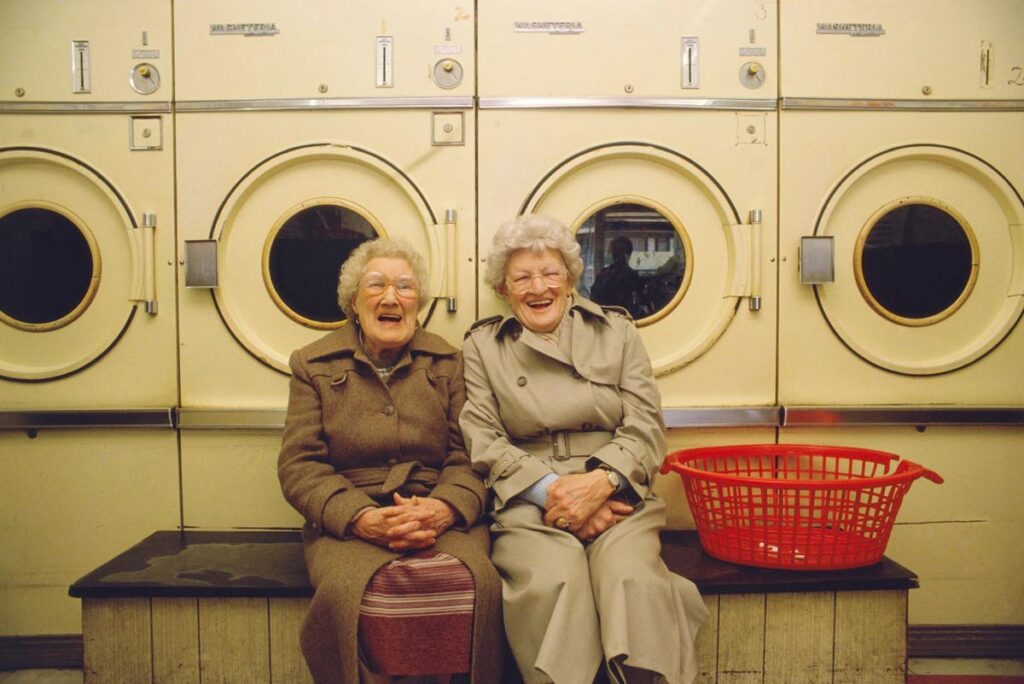Two senior woman in launderettes, laughing, portrait
Childhood trauma can have lifelong impacts on an individual’s overall health and well-being. Multiple studies have proven that everything from childhood neglect to financial instability to domestic violence might even impact an adult’s ability to live a long life. In fact, those who have six or more adverse childhood experiences might have an average life span that is 20 years shorter than those who had a normal childhood. This is because childhood trauma not only affects mental health but also the immune system.
But just because someone was dealt bad cards during their childhood does not mean they are doomed to a lifetime of misery. According to a new study published in Science Advances, building strong social relationships and having a high social status during adulthood can act as a buffer against the negative impacts of childhood trauma.
The team of researchers analyzed data that was collected over a span of 36 years after studying 200 baboons in southern Kenya. They observed that although childhood adversity can shave several years off the animals’ lifespan, strong friendships could help baboons get back two years of their life expectancy. “Social buffering has also been suggested as a mechanism to counteract the negative effects of early life adversity in other mammals and humans,” the researchers explained.
In a press release, senior author of the study, Susan Alberts from Duke University said: ““It’s like the saying from the King James Apocrypha, ‘a faithful friend is the medicine of life.”
But the researchers pointed out that early life adversity can affect individuals’ ability to form social bonds — particularly during the early adulthood stage. Also, an individual’s survival is mostly influenced by the social bonds they build during late-adulthood. A 2019 survey found that older American adults with strong social connections were in better health. But their friendships or relationships during early adulthood were not linked to their health. “Understanding how the effects of early adversity depend on life stage is therefore an important future avenue of research,” Alberts and colleagues noted in their study.
“Our results suggest that adult social behaviors that maintain social bonds should be under strong selection. Because social behavior is almost always partially heritable, including in our study population, these behaviors have the potential to evolve via natural selection,” they added.
They further highlighted that the mechanisms that link adult friendships to survival still remain unclear. Despite these limitations, the study revealed that if a female baboon’s mother dies during her childhood, she might have weaker social bonds with other female baboons as an adult. But that form of childhood adversity would not impact their ability to forge deep relationships with male baboons.
However, if a baboon experienced a drought in the first year of their life, that trauma would result in weaker social bonds with both, males and females compared to those who never experienced droughts. “Drought threatens food availability, which, in turn, hinders growth and development, especially but not only during the crucial first year of life. In addition, individuals born during droughts may have fewer opportunities to learn foraging skills during younger years when adults are more tolerant of them during foraging. Consistent with our results, experiencing droughts in early life negatively affects health in humans,” the researchers wrote.


